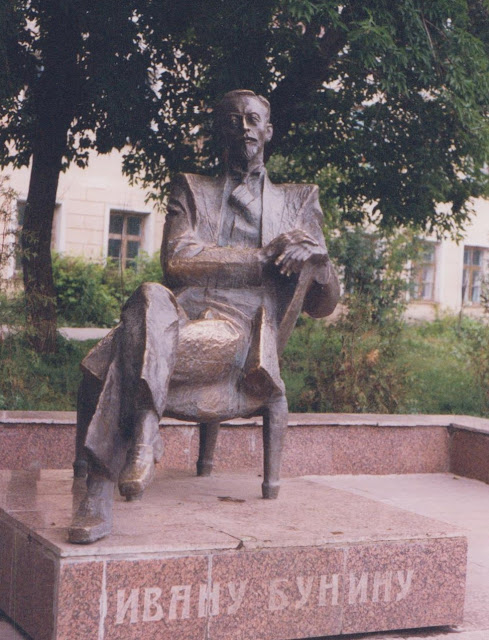Mixed Up Guy
From
Dostoevsky’s notebooks for his novel The Devils: “Stavrogin [the central
character], when he believes does not believe that he believes, and when he
does not believe, does not believe that he does not believe.” Dostoevsky
himself had the same problem.
Dostoevsky and Suslova
“One
evening he stood at the edge of the Catherine Canal and peered into the dark
water where the reflected flames of the gas lamps flickered dully, thinking of
the best that still remained to him in life, of Apollinaria. He took out of his
black moiré briefcase a large photograph of a young woman in a smart,
light-colored dress with a Parisian cut. A sharp pang pierced his heart. He
looked closely at the serious face. A young woman in a white blouse with a
slightly open neck gazed at him from the dark background. The elongated oval of
her face and her bright forehead were strikingly pure. The dark hair, parted
smoothly and lifted high in a tight braid that encircled the head, shone like
silk in the sun. Huge, reflective, deep-set eyes looked out with surprise and
almost naivety, as if asking a question, or sympathizing with someone’s sorrow.
The face was cloudlessly serene. Intense thought and, perhaps, secret
suffering, had given the features a refined spirituality. Only the lips had a
touch of the common people.”
Leonid
Grossman biography of Dostoevsky
Immediately
after this pensive scene in St. Petersburg, Dostoevsky stops staring at the
photograph and rushes off to Western Europe to join Apollinaria (Polina)
Suslova. Now Grossman, who has made this whole scene up and put things into
Dostoevsky’s mind and soul—“A sharp pang pierced his heart,” give us a break—can
also put down the picture, into which he has read so much, and go back to inventing
more fictitious scenes from the life of a great writer. It appears, however,
that, while contemplating the image of Polina’s face, Grossman has failed to
see a lot of other traits that are apparent from what little we know of her:
her immaturity, silly romantic inclinations, love of playing sadomasochistic
games, and, probably most central of all: her basic stupidity.
The Redoubtable Polina
When
she was a young woman the passionate Polina Suslova had a lot of fun tormenting
Dostoevsky; this was when they travelled together in Europe in 1863. When she
was forty she married the philosopher and gadfly Vas. Vas. Rozanov, who was
twenty-four. Why did you do it, Vas. Vas.? How could you have been so
thoughtless? Didn’t anybody warn you? She was said to have had one redeeming
feature: she always kindly asked Vas. Vas. to remove his spectacles before
slapping him about the head and face.
[excerpted from the book by U.R. Bowie, Here We Be. Where Be We?]












